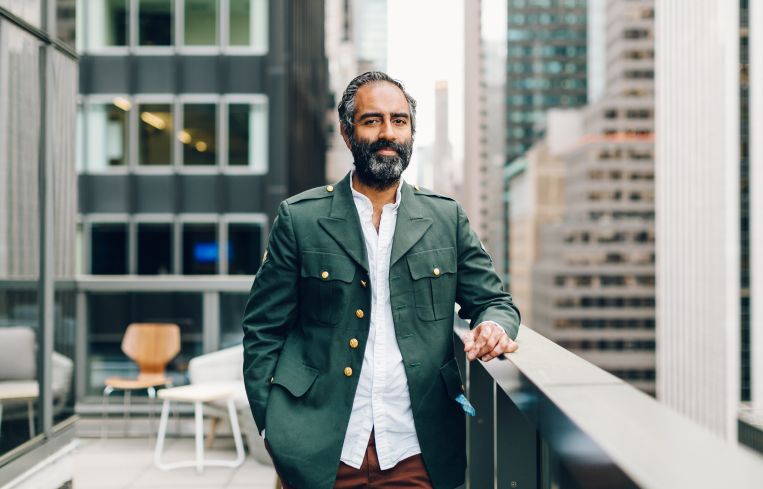Knotel in Talks to Give Back 20 Percent of Its Portfolio
Knotel plans to walk away from about 1 million square feet of space, including locations in Manhattan
By Nicholas Rizzi April 8, 2020 1:31 pm
reprints
Flexible workspace provider Knotel plans to give back about 20 percent of its 5-million-square-foot portfolio to landlords amidst the coronavirus pandemic, with a “large percent” of the relinquished space coming from its Manhattan portfolio, Commercial Observer has learned.
Knotel — which has a valuation of more than $1 billion — has begun reaching out to landlords across the world to work out a “business deal” to return about 1 million square feet of space “we don’t think are going to be successful after this recession,” CEO Amol Sarva said.
The firm operates in 17 markets, led by New York City, where it operates 2.5 million square feet, as well as in cities like Boston, Washington, D.C., and Amsterdam, in the Netherlands. Sarva declined to specify how much of the space given back will be in New York City but said a “large percent” is in Manhattan.
“It’s not a welcome conversation with a landlord, but it’s us just being tough-minded,” Sarva said. “There will be change coming soon and I think we are moving to be ahead of that. Here we are doing that, again that does mean some properties are not going to be on the list.”
(Disclosure: Observer Capital, led by Observer Media Chairman and Publisher Joseph Meyer, is a Knotel investor.)
The locations targeted are ones Knotel doesn’t think will have demand whenever the coronavirus pandemic wanes and others with safety concerns over ease of disease spread, including ones with small elevators and poor ventilation.
Knotel’s New York locations include spaces at 580 Fifth Avenue, the former New York Times Building at 229 West 43rd Street and 40 Exchange Place.
Knotel’s shedding of spaces comes after it laid off 30 percent of its 400 employees and furloughed another 20 percent as it completely restructures the company to survive the coronavirus pandemic.
Sarva said another round of job cuts is unlikely for Knotel.
The firm decided to shed some of its portfolio as the economic toll of the coronavirus rises, Sarva said. While the epidemic has forced the vast majority of Knotel’s tenants to work remotely, only a small number have shuttered completely. But Sarva expects the number to grow soon.
“There will surely be more,” he said. “I don’t think companies know it yet.”
Rent is due
Sources told CO that Knotel has told New York City landlords that it won’t pay April’s rent. However, one landlord said Knotel simply didn’t give the rent yet, and had failed to provide any notice.
Sarva said Knotel is “still in discussions” with landlords over the rent and haven’t heard back from some.
“They got bigger fish to fry,” Sarva said of the landlords. “Office is going to be on the other end of this, and Knotel might be the single most durable partner to an office landlord.”
For April, Sarva said the vast majority of Knotel tenants have paid their fees (but could not provide specific numbers) and the firm has begun offering deferrals for some.
The coronavirus pandemic has shaken up the flexible workspace market with several companies shedding staff. Flexible meeting, event and office operator Convene laid off nearly 150 employees with plans to furlough additional workers; Industrious laid off 90 employees (nearly 20 percent of its headcount); women’s coworking operator The Wing cut half of its corporate workforce and WeWork cut about 250 jobs in March with more reportedly on the way, as CO previously reported. WeWork’s majority investor, SoftBank Group, also announced last week that it canceled a $3 billion share buyback program for the coworking company.
Before the coronavirus turned into a global pandemic, Knotel — which reached unicorn status when it closed on a $400 million fundraising round — laid off 24 employees in January focused on the New York City market.
Knotel also faced negative headlines when Crain’s New York Business reported in November 2019 that nearly one-third of its New York City portfolio is sitting vacant. Sarva previously told CO that a certain amount of vacancies was par for the course for flex office companies.



